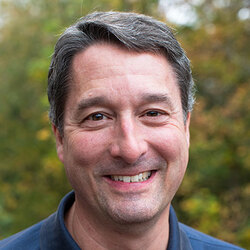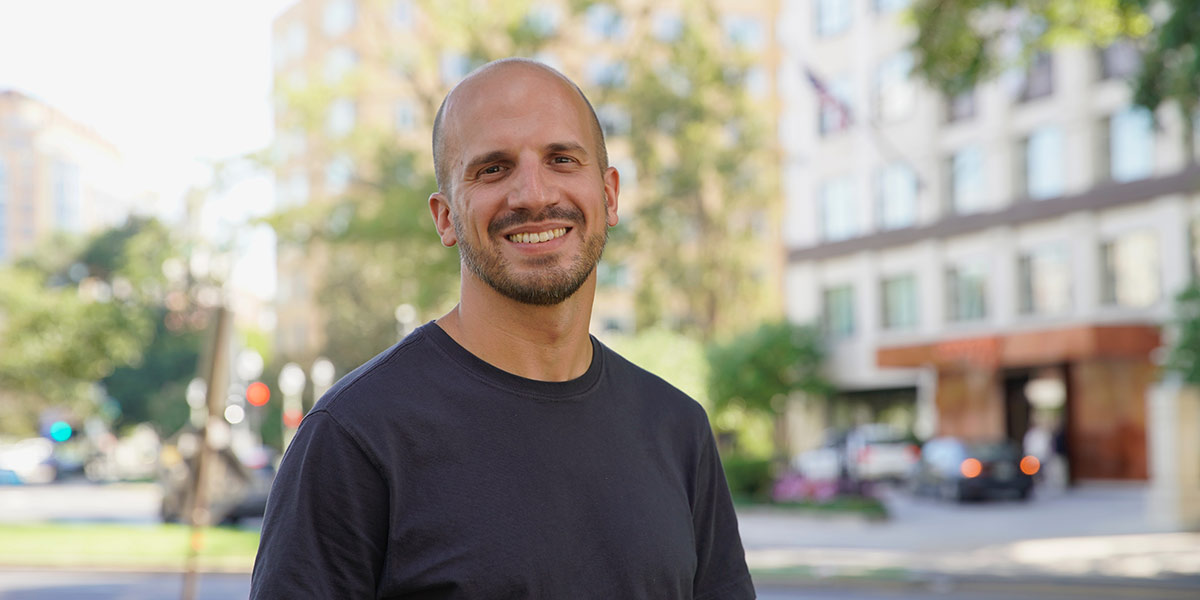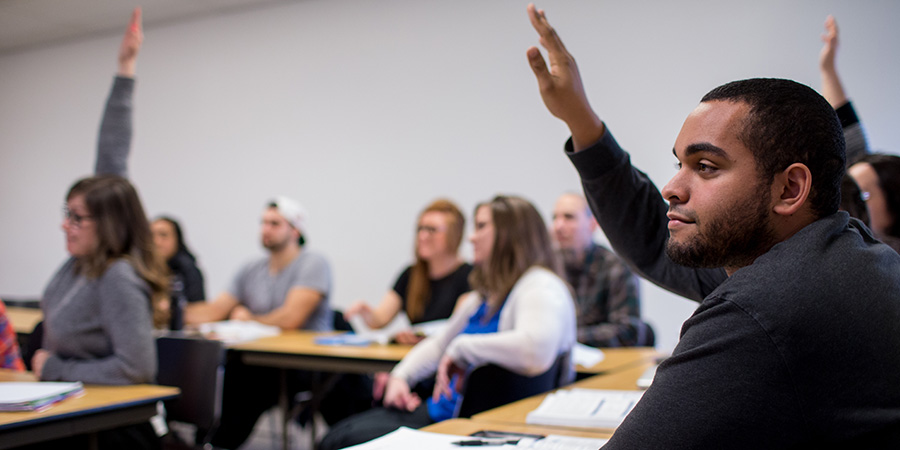
Resilience Personified
by Sean Patterson
Forced to leave her homeland as a teen – and faced with the sudden deaths of family members – Mirna Pani models for her school counseling students what it takes to overcome hardship
Mirna Pani was 10 years old when the war began. Her brother, 10 years her senior, was among the first to volunteer to fight in a civil war that ultimately dissolved her native Yugoslavia and left her hometown of Sarajevo – blockaded and bombarded with artillery and tanks for nearly four years – in ruins.
Perhaps that is where her fascination with the resilience of children began. She herself was given no choice. It was either be strong and adapt, or give in to hopelessness and despair.
She didn’t know it then, but Pani was destined to work with kids. Today, she is fulfilling that calling as an elementary school counselor at Boones Ferry Primary School in Wilsonville, Oregon, where she does the very things – sits, listens and cares – that she longed for but didn’t receive as a refugee in a new land.
“What started me on this journey was this fascination I’ve always had with the fact that children are naturally resilient and more naturally able to adapt,” says Pani, a 2023 graduate of George Fox University’s Master of Arts in School Counseling program. “And then, being a survivor myself, I knew that I wanted to be in the mental health field, and more importantly, support the journeys of children and youth going through trauma.”
Pani’s own journey not only sparked an interest in coming alongside children, but birthed in her a passion to learn more about the healing and restoration process. What is mental fortitude? How does one find hope in adversity? How can we encourage in others the ability to be resilient – to overcome?
Even as the questions rattled around in her brain, Pani had to find answers to them herself – beginning with the war that resulted in her family fleeing their homeland, and later dealing with the sudden deaths of her father and identical twin sister.
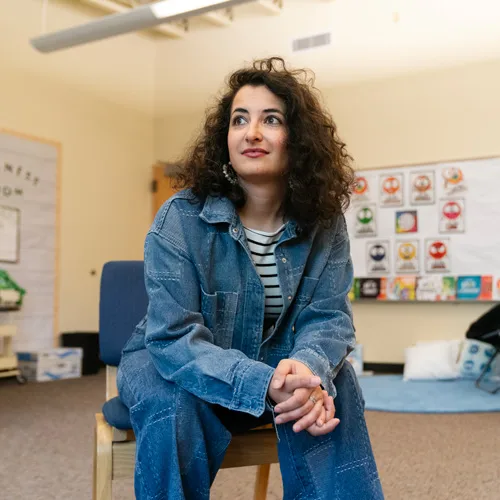
Life as an ‘Exotic Plant’
Ever since the day she was forced to leave her childhood home, Pani has never really felt “at home.” Upon moving to Oregon as a young teen, she was thrust into a culture that left her confused and feeling out of place. And unfortunately, she didn’t receive the support she needed.
“Back then, the idea of a ‘school counselor’ was someone you went to if you needed your schedule changed or if you were in trouble,” she recalls. “I personally didn’t receive much support in school, so I love the fact I am now really talking with children and digging into issues with them. I think, especially for younger kids, they’re used to adults just telling them what to do.
“What I love about working with elementary youth is the fact I get to listen to them and empower them to advocate for themselves and come up with solutions rather than just getting those solutions from adults.”
And, as a first-generation immigrant, she can relate to kids who feel disenfranchised or like they don’t fit in.
“I feel like an exotic plant myself,” she laughs. “My roots are planted here, and yes, I’m thriving. But I feel different and don’t feel 100 percent like I fit in. Even when I go back home I don’t fit in 100 percent either, so I have an appreciation for others going through things like what the people of Ukraine are going through right now.
“I don't think it’s possible for anyone to go through an experience like war without having mental scars, knowing someone that died or having family members who were very impacted. Early on I learned that things can change overnight. Your home could be taken away. But what I also learned is that physical things are not important. What’s most important is time with loved ones and just making memories.”
An Advocate for Children
Pani and her family slowly found their footing in their new country, and she began to excel. Upon graduating from high school, she earned a bachelor’s degree in psychology at the University of Oregon and launched a career helping trauma-impacted youth, first for nine years as a residential youth counselor for Youth Villages – a nonprofit that specializes in assisting children with emotional, mental and behavioral problems – and later, over the next nine years, as a resource specialist, medical assistant, and recruiter for Options Counseling and Family Services.
“I worked with very traumatized children, mostly from foster care, and that’s where I learned not to label kids as ‘bad youth,’ which is what was presented when they came to us, but to see them as kids who simply needed help developing skills they were never taught,” she says. “So, of course, what we know – routine, consistency, high expectations and boundaries – worked really well for those children. What was frustrating was we had little control over what happened when they left the facility. A lot of kids would come and go.”
Pani decided to expand her horizons, so she enrolled in George Fox’s school counseling program in 2018 with the intent of potentially finding a job in a school setting. Little did she know then that her world was about to be rocked – again.
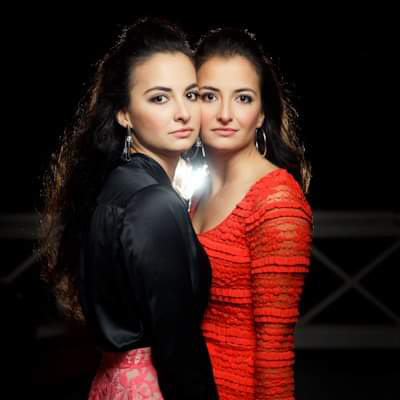
Devastating Diagnosis
Pani was excited about the prospect of earning a master’s degree. Within months of enrolling, however, she second-guessed her decision upon learning her twin sister Lana – the person she was closest to all her life – was diagnosed with an aggressive form of breast cancer.
“I actually said it was, whatever you want to call it – ‘God’s intervention?’ – that I had applied,” she says. “After we got the diagnosis, I thought, ‘I would never have applied if I knew this was coming.’ I wanted to quit, but my sister insisted I finish what I started. She encouraged me to stick with it.”
More devastating news hit the family in the summer of 2019, as Pani’s father died unexpectedly. She took more time away from school to tend to family affairs, deciding she would return in January of 2020. It was then, however, that she learned Lana’s condition had taken a turn for the worse: Her beloved sister was given only four months to live.
Pani decided to take the year off to help take care of her sister, all the while vowing she would eventually return to finish the program. After all, Lana had insisted on it.
“I get tears in my eyes just thinking about it,” she says. “In 2023, I walked across that stage, on May 3, with my degree. Lana died on May 4, 2020, almost exactly three years before. That was a bittersweet moment for sure. I know she was there that day, just not in a physical presence.”
The Role of a Facilitator
In her role as a school counselor, Pani’s core belief – that children are inherently capable of identifying and addressing their own problems – is exemplified in the way she views each child’s individual situation. In short, she isn’t there to spoon-feed them answers. Rather, her role is to facilitate self-discovery.
“I’m a firm believer in collaborative problem-solving,” she says. “At the heart of it, every behavior is a form of communication, whether positive or negative, and so really looking into what the underlying need is is key to finding a way to reach them and support them. So, it’s a matter of just taking time to really understand what it is that they’re communicating – what is the need?
“And then, it’s a matter of not handing over the solution but partnering with kids and families to empower them to be in the driver's seat and come up with solutions themselves versus coming to me, ‘the expert,’ for all the answers. I want to hear from them. I think that every story is unique. I love to honor stories and listen to kids, and they’re the experts of their own story, so it just makes sense that they also take ownership in developing their skills and solving their own problems.”
Ultimately, for Pani, it’s all about offering hope.
“And there’s that hope – the hope that if we provide appropriate mental health services and counseling to students – that we can help kids not only learn but, more importantly for me, recognize their needs, advocate for themselves, and have a bigger array of tools as they progress to middle school and high school.”
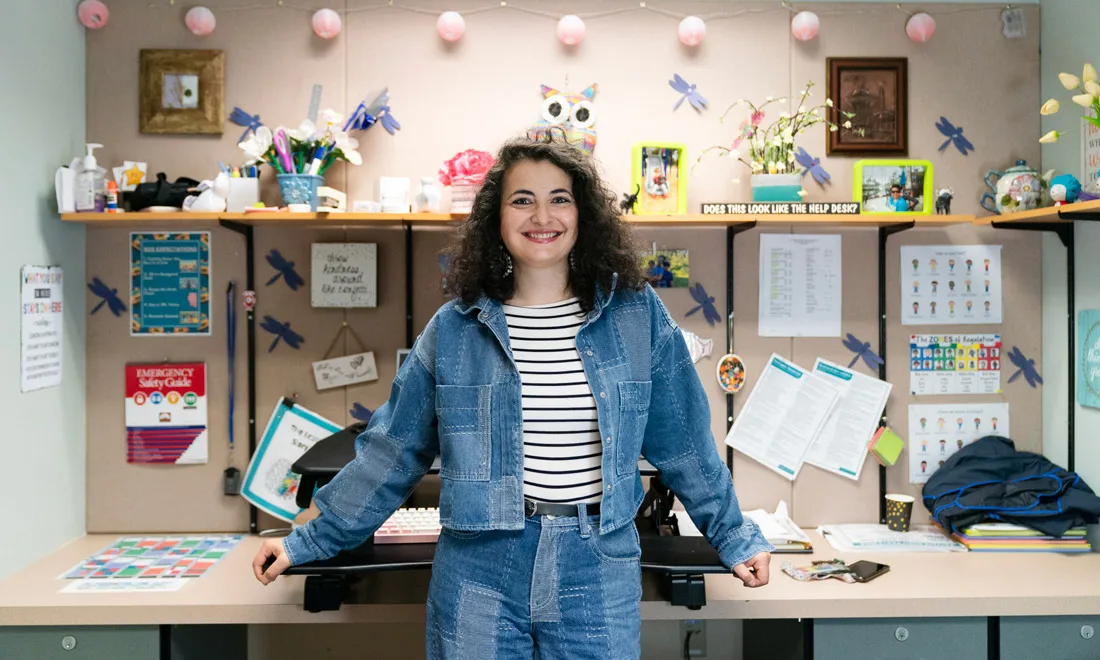
‘An Amazing Education’
Pani credits her experience at George Fox for equipping her with the skills to tackle the challenges of her position. Beyond that, her professors modeled the very beliefs she strives to live out in her classroom.
“What I loved about George Fox beyond the amazing education was the fact they cared for me as a whole person,” she said of her mentors. “Many times I cried in [Professor] Lori [DeKruyf’s] office when I was going through things. She’s the one who really believed in me. She’s definitely the person who stands out to me and reflects the work that we do.
“On a practical level, we had the opportunity to be in the field three times. There’s a clinical practicum, then teaching portion, and finally a whole year where we are mentored by a school counselor. I really thrive in an environment where I’m in a classroom physically seeing people, interacting and asking questions, and I love the fact that George Fox has a policy that professors have to be active in the field.
Ultimately, she says, the program models for her what she believes is the foundation of counseling practice. “In stripping everything back, in every concept we learn about, we begin with ourselves.”
For Pani, that introspective approach serves well to inform the pupils she seeks to help. She is, by her own admission, a survivor – and what better a source for inspiration than someone who has “survived” herself?
“You have to ask, ‘How does this all apply to me?’ How does it make me understand my story, my world, a little bit better? Because unless we know how to apply it to ourselves, I don’t think that we can truly explain the concept or apply it to anyone else.”
Although George Fox University no longer offers a school counseling program, students and graduates of our school social work program are working to address the needs of students in public and private settings.
